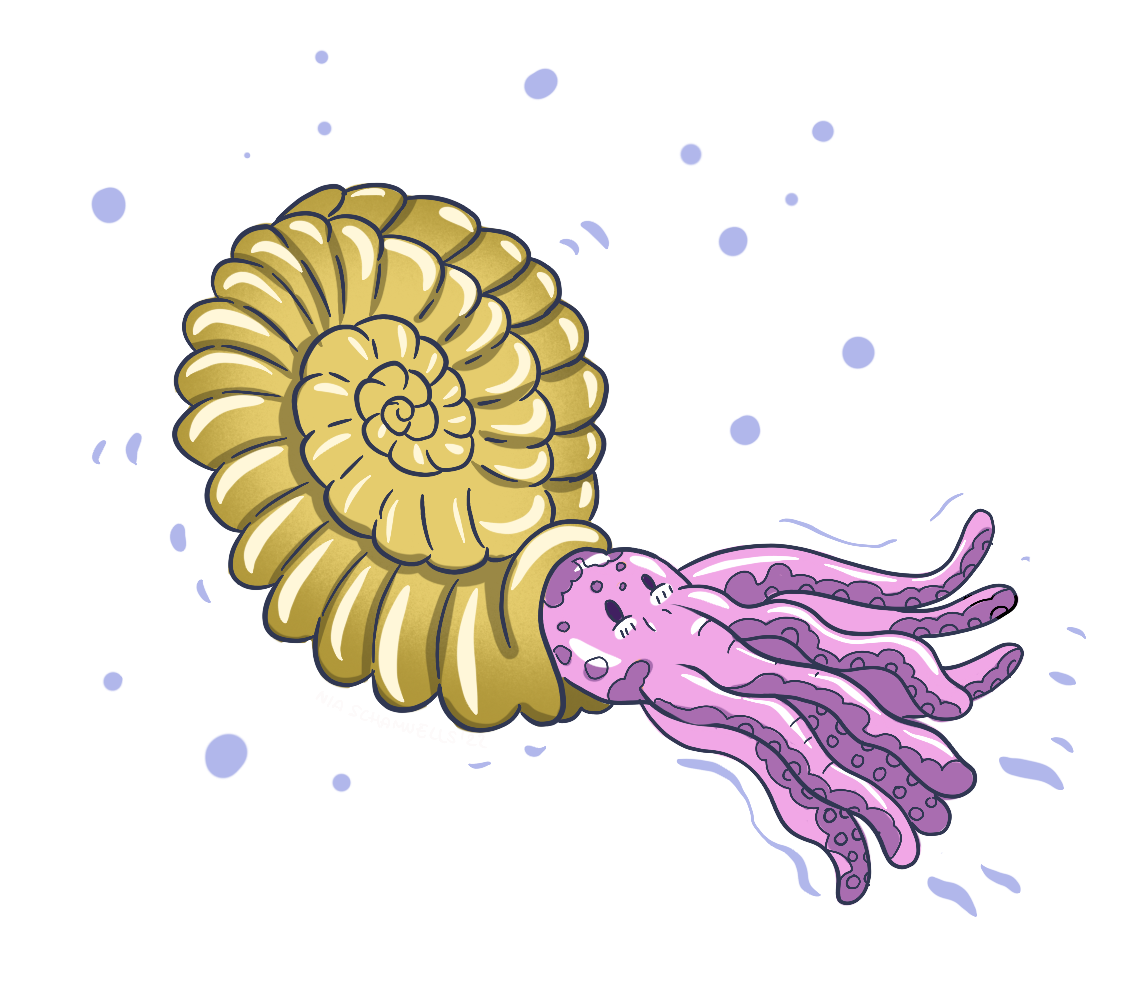Fossil cephalopods are ancient marine animals that once ruled the oceans millions of years ago. These fascinating creatures are related to modern-day squids, octopuses, and nautiluses and are known for their distinctive cone-shaped shells.
Cephalopods lived in a wide range of marine environments, from shallow, warm seas to the depths of the ocean. They had a variety of shapes and sizes, ranging from small, pencil-sized species to giant ones that were over ten meters in length.
Cephalopods were active predators, using their tentacles to catch prey and their sharp beaks to tear it apart. They were an important part of ancient marine ecosystems, playing a role in regulating the populations of other animals and helping to maintain a healthy balance of nutrients in the ocean.
Cephalopods lived in a wide range of marine environments, from shallow, warm seas to the depths of the ocean. They had a variety of shapes and sizes, ranging from small, pencil-sized species to giant ones that were over ten meters in length.
Cephalopods were active predators, using their tentacles to catch prey and their sharp beaks to tear it apart. They were an important part of ancient marine ecosystems, playing a role in regulating the populations of other animals and helping to maintain a healthy balance of nutrients in the ocean.

Fossil cephalopods are valuable to scientists for studying the evolution and ecology of ancient marine ecosystems. By analyzing the size, shape, and distribution of cephalopod fossils, researchers can learn about past ocean temperatures, nutrient availability, and other environmental conditions. Fossil cephalopods can also help geologists date rock formations and reconstruct ancient environments.
In addition to their scientific value, fossil cephalopods are also prized by collectors for their intricate and beautiful shell structures. These ancient sea creatures offer a glimpse into the diversity of life that once existed on our planet and serve as a reminder of the incredible history of our Earth.
In addition to their scientific value, fossil cephalopods are also prized by collectors for their intricate and beautiful shell structures. These ancient sea creatures offer a glimpse into the diversity of life that once existed on our planet and serve as a reminder of the incredible history of our Earth.
